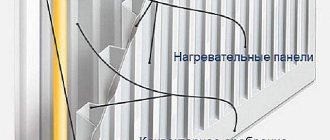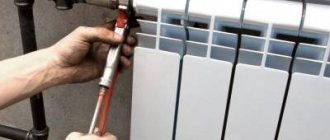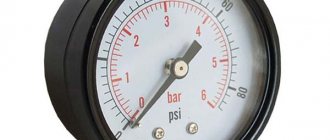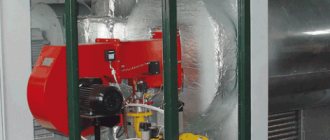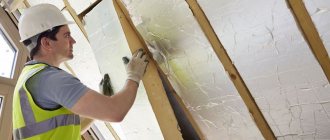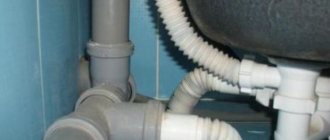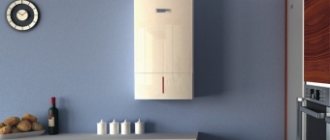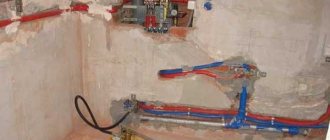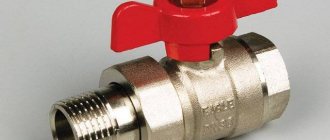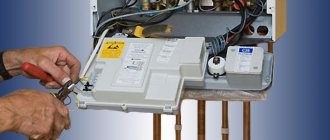Responsibility for maintaining common property in the house
According to the law, the owners of the premises in the house themselves bear responsibility for the maintenance of apartments and common property in apartment buildings (Article 210 of the Civil Code of the Russian Federation, Part 3 of Article 30, Article 39 of the Housing Code of the Russian Federation). They transfer a monthly fee to the management company, which, in turn, undertakes to carry out the corresponding work and provide services for this amount.
Also, the owners of premises in an apartment building pay the management company, RSO and the regional capital repair fund for current and major repairs of common property in the house (part 2 of article 154, article 156, 158, 166, 169 of the Housing Code of the Russian Federation; Decree of the Government of the Russian Federation No. 491 of August 13. 2006).
It turns out that the burden of the main burden of maintaining in proper condition and routine repairs of common property in a residential building falls on the shoulders of the management company (Article 161 of the Housing Code of the Russian Federation). Consequently, the management company must carry out repairs of common property in the house without charging additional fees for this in excess of the monthly payment amount of the housing and communal services consumer.
Therefore, it is important to determine which property in the apartment belongs to the general, and which belongs to the personal use of the owner of the premises in the apartment building.
The need to determine the composition of the common property of premises owners in apartment buildings
4789310
Who should change the batteries in an apartment if it is privatized
It follows from this that if, due to a high degree of wear and tear or as a result of an accident, the battery leaks, it must be replaced by an organization that receives monthly money from residents in the form of contributions for major repairs and is responsible for the maintenance and servicing of home property.
Despite the fact that employees of a private company can perform better installation of new equipment, knowledgeable people recommend calling a local specialist. This is so that in case of possible problems in the future, you will know who to contact. If an accident occurs, you will not be held responsible for poor installation of equipment that caused damage to the property of other residents.
Common property in the apartment building, which the management company repairs free of charge
Management companies must carry out free repairs of the following equipment that is part of the common property in the apartment building:
- in-house engineering systems of cold and hot water supply , including risers with branches up to the first disconnecting device, collective (common house) water meters, the first shut-off and control valves on the branches of the intra-apartment wiring from the risers, mechanical, electrical, sanitary elements related to these networks ;
- intra-house gas supply engineering systems , including gas pipelines laid from the gas source or the point of connection to the gas distribution network to the shut-off valve on branches to the intra-apartment gas supply system, gas-using equipment (except for gas-using equipment inside the apartment), technical devices on gas pipelines, control and safety valves, gas control system premises, collective (common house) gas meters, gas control unit that records its volume during the production of public services;
- intra-house heating systems , including risers, heating elements, control and shut-off valves, collective (common house) heat meters, and other equipment related to these networks;
- in-house power supply systems , including incoming cabinets, input distribution devices, protection, monitoring and control equipment, collective (common house) electricity metering devices, floor panels, lighting installations in common areas, electrical installations of smoke removal systems, automatic fire alarms of internal fire water supply systems, cargo , passenger and fire elevators, automatically locking devices for apartment building entrance doors, cables from the external border to individual, general (apartment) electricity meters, and other electrical equipment related to these networks (RF PP No. 491).
Management companies will pay fines to residents for incorrect calculation of utility bills
399641
The building manager will be responsible for the flood
And the reason for such interpretations was a utility failure in one of the apartments. The injured owner, who suffered a flood due to a broken tap on the cold water riser, demanded compensation from the management company for its own costs to eliminate the consequences of the leak. The amount turned out to be quite large, since the citizen added to the costs of repairs moral damages, a fine for the fact that the utility companies did not voluntarily reimburse the amount, as well as the costs of the examination.
Already in court, the plaintiff said that she was the owner of the apartment. And as a result of an accident at the first shut-off and control tap of the cold water riser, her apartment was flooded. According to the victim, the manager was to blame for the accident. The utility workers did not voluntarily admit guilt. I had to go to court.
The city court agreed with the plaintiff's request and satisfied her claim. But the next instance - the judicial panel for civil cases of the regional court - did not agree with its colleagues. She canceled the decision and made a new one - to refuse the citizen’s claim. The plaintiff had to go to the Supreme Court, where the regional court’s decision was overturned.
Here are the arguments of the Supreme Court of the Russian Federation. The court stated that in order to properly resolve this dispute, it is necessary to establish “the presence of guilt of the parties in the accident that occurred.” And in the materials of the appeal court there were copies of the decision of another court that had entered into force on the claim of another victim of this flood. A certain man made financial demands on his neighbor, who had this tap on the cold water riser, as well as on the management company. The court decided the dispute in favor of the injured neighbor, but ordered him to pay only the management company, and did not take anything from the neighbor whose tap broke. This decision states that the utility workers are to blame for the accident that happened in the neighbor’s apartment. These conclusions of the court, which no one challenged, were not taken into account by the appeal. The law (Civil Procedure Code, Article 61) states that the circumstances established by a court decision that has entered into force are mandatory. And they are not proven again and are not disputed.
The Housing Code lists what equipment the management company is responsible for. There are also Rules for the maintenance of common property in an apartment building. They were approved by the government (Resolution No. 491 of August 13, 2006). The rules state that the common property, among other things, includes “common building engineering systems for hot and cold water supply, consisting of risers, branches from the risers to the first shut-off device.” And companies managing apartment buildings are responsible to the owners for violation of obligations and are responsible for the proper maintenance of common property.
There is another law that is useful for citizens who find themselves in a similar situation - “Technical Regulations on the Safety of Buildings and Structures” (No. 384 of December 30, 2009). The Supreme Court said that from this law, as well as existing standards and codes of practice, it follows that the first shut-off devices and shut-off and control valves on branches of intra-apartment wiring are elements of intra-house utility networks. These first shut-off devices and shut-off and control valves meet the basic characteristic of common property as intended to serve several or all rooms in the house.
If the equipment is located in an apartment, this does not mean that it is used only to service this apartment
And the fact that this equipment is located in an apartment does not mean that it is used exclusively for servicing this apartment, and cannot be classified as common property in an apartment building, since the Housing Code provides for its location both inside and outside the premises.
The Judicial Collegium for Civil Cases of the Supreme Court emphasized: circumstances indicating that emergency plumbing equipment belongs to the property of the plaintiff or to the common property of the residents of the house are significant for resolving the dispute and are subject to proof. When the appeal reviewed the decision on this dispute, it stated that the plaintiff, along with replacing the internal utility networks in the apartment, which are her property, also replaced the shut-off valve that caused the accident. But the lady categorically disagreed with this statement, and the court of second instance did not check this and “did not reliably establish.”
The Supreme Court added one more thought to this statement - replacing the shut-off valve does not relieve the management company from fulfilling its responsibilities for maintaining the common property of an apartment building.
Equipment that the management company should not repair for free
The management company is not obliged, at its own expense, to carry out free repairs of the following equipment in the apartments of premises owners in apartment buildings:
- individual metering devices for hot and cold water, gas, electricity;
- gas and electric stoves;
- plumbing equipment in the apartment (faucets, taps, bathtubs, sinks, toilets, water heaters);
- pipes and bends installed on branches from risers after the shut-off device or shut-off and control valve;
- intercoms in the apartment;
- electrical cables, sockets in the apartment;
- other equipment not included in the common property , intended to serve only one apartment.
How to determine the responsibility for repairs of the owner and management company
In order to decide whether repairs of equipment in the apartment of the owner of the premises in an apartment building should be carried out for a fee or free of charge, it is necessary to determine the internal boundaries of the utility systems , which delimit responsibility for their operation between the owner of the property and the management company.
As you already understood from the lists above, for example, branches from hot and cold water supply risers after shut-off and control valves, along with this element itself in the owner’s apartment, as well as plumbing, are not included in the operational responsibility of the management company. Therefore, the management company should not repair this equipment for free.
To avoid misunderstandings and disputes, we recommend that you fix the boundaries of operational responsibility between your management company and the owners of premises in the apartment building in a management agreement .
But if there is an accident or breakdown of equipment in the owner’s apartment, which is part of the common property, then the management company is obliged to make repairs free of charge (Decision of the Supreme Court of the Russian Federation dated November 30, 2011 No. GKPI11-1787).
You should also pay attention that if the need to repair equipment inside the apartment is caused by improper provision of utilities , then the owners of the premises can demand from their management company compensation for losses incurred or expenses for its repair or repairs at the expense of the Criminal Code (clauses 149, 151 of the Decree of the Government of the Russian Federation No. 354 dated 05/06/2011).
Division of powers in the housing and communal services sector
78950
Responsibilities for replacing risers in a privatized apartment
All those communications that are located inside the apartment and which only its owner and residents can use do not raise questions about their ownership. This is private property. And the owner can do whatever he sees fit with them. Of course, if this does not lead to damage to the property of his neighbors or their other rights and interests.
An exception is the case when repairs are required as a result of unauthorized repairs made by one of the apartment owners or any structural changes to the building's common communications. And if neighbors were injured as a result of such interference, then they will have to be compensated for the damage.
We recommend reading: One-time subsidies for young families in the Republic of Belarus in 2019
